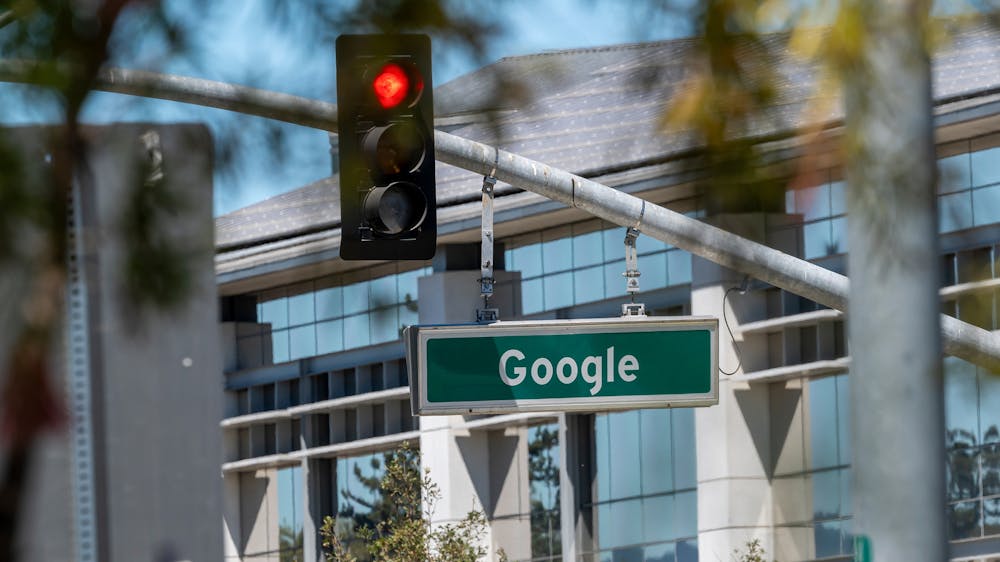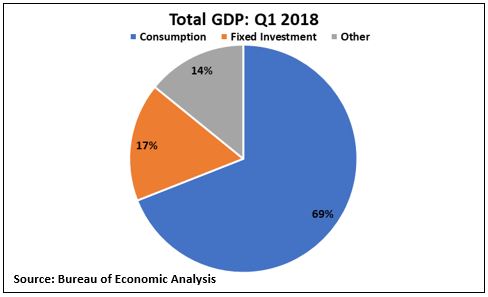Is Google Facing Its Biggest Threat Yet? A Potential Breakup

Table of Contents
The Antitrust Arguments Against Google
The calls for a Google breakup are largely rooted in antitrust concerns. These concerns stem from Google's overwhelming market dominance and allegations of anti-competitive behavior.
Google's Market Dominance in Search and Advertising
Google holds an unparalleled market share in both search and online advertising. This dominance translates to significant control over information access and online advertising revenue streams.
- Search: Google commands over 90% of the global search market share, leaving little room for competitors.
- Advertising: Google's advertising revenue dwarfs that of its competitors, giving it immense power over the online advertising ecosystem. Its platforms like Google Ads dominate the market.
- Android OS: The Android operating system, owned by Google, powers the vast majority of smartphones globally, further solidifying its control over user data and app distribution. This market share translates into billions in revenue.
Allegations of Anti-Competitive Practices
Numerous lawsuits and investigations have accused Google of employing anti-competitive practices to maintain its dominance.
- Self-preferencing: Google is accused of favoring its own products and services in search results, giving them an unfair advantage over competitors.
- Predatory pricing: Allegations of predatory pricing tactics, where Google undercuts competitors' prices to drive them out of business, have also been raised.
- Stifling competition: Google has been accused of acquiring promising startups to eliminate potential threats, hindering innovation and competition. Examples include the acquisition of Waze and Fitbit.
The Impact on Consumers and Innovation
Google's market dominance allegedly harms consumers through limited choice, potentially higher prices, and reduced innovation.
- Limited choice: Consumers have fewer alternatives to Google's products and services, reducing their bargaining power.
- Higher prices: The lack of competition could lead to higher prices for businesses utilizing Google's advertising platforms and potentially higher prices for consumers in the long run.
- Stifled innovation: A lack of competition can stifle innovation as Google faces less pressure to improve its offerings. Smaller companies may struggle to compete, leading to less diverse and innovative products.
Google's Defense and Arguments Against a Breakup
Google strongly defends its position, arguing that its size and influence are a result of innovation and that a breakup would be detrimental.
Google's Contributions to Innovation and Technology
Google points to its significant contributions to technology, including advancements in AI, search technology, and open-source projects.
- AI advancements: Google is a leading innovator in Artificial Intelligence, with advancements impacting various sectors.
- Search technology: Google's search algorithm constantly evolves, aiming to provide users with the most relevant information.
- Open-source contributions: Google contributes significantly to open-source projects, benefiting the broader tech community.
The Challenges of Breaking Up a Tech Giant
Breaking up a tech giant like Google presents significant logistical and practical challenges.
- Complexities of separation: Dividing Google's various interconnected businesses would be an incredibly complex undertaking.
- Negative impact on innovation: A breakup could disrupt ongoing projects and negatively impact innovation.
- Increased costs for consumers: The restructuring process could potentially lead to increased costs for consumers.
The Argument for Maintaining a Unified Google
Google argues that its integrated structure allows for synergies between its services, leading to efficiencies and benefits for users.
- Synergies between services: Google's various services often work together seamlessly, enhancing the user experience.
- Economies of scale: Google's size allows for economies of scale, benefiting both the company and consumers.
- Arguments against fragmentation: Google contends that fragmentation would harm innovation and user experience.
Potential Outcomes of a Google Breakup and Their Implications
Several scenarios could emerge from the ongoing legal battles surrounding a potential Google breakup.
Scenario 1: A Complete Breakup
A complete breakup could lead to increased competition, potentially fostering innovation but also creating uncertainty and potential disruptions.
- Increased competition: A breakup would create several smaller entities, potentially fostering competition.
- Reduced innovation: There's a risk of reduced innovation in certain areas due to the fragmentation of resources.
- Higher costs: Consumers could see higher prices for some services due to increased operational costs for the newly independent entities.
Scenario 2: A Partial Breakup
A partial breakup, involving the divestiture of specific business units, is another possibility.
- Targeted competition: This approach could increase competition in specific sectors without causing widespread disruption.
- Less disruptive impact: A partial breakup is likely to have a less disruptive impact on consumers.
- Ongoing antitrust concerns: Antitrust concerns might persist in other areas even after a partial breakup.
Scenario 3: No Breakup
If regulators decide against a breakup, Google's dominance would continue, leading to ongoing scrutiny and potential for further consolidation in the tech industry.
- Continued dominance: Google would maintain its market leadership, possibly exacerbating existing concerns.
- Further consolidation: The lack of a breakup could lead to further consolidation within the tech industry.
- Increased scrutiny: Google would face continued and likely intensified scrutiny regarding its business practices.
Conclusion: The Future of Google and the Debate Over a Breakup
The debate surrounding a potential Google breakup is complex, with compelling arguments on both sides. While Google's contributions to technology are undeniable, concerns about its market dominance and alleged anti-competitive practices remain significant. The potential outcomes – a complete breakup, a partial divestiture, or no action – all carry significant implications for the tech landscape, consumers, and competition. The future of Google and the broader tech industry hangs in the balance. Share your thoughts on the potential #GoogleBreakup and stay informed about this crucial development. Let’s continue the conversation using #Antitrust and #TechMonopoly.

Featured Posts
-
 Analyzing The Bank Of Canadas Rate Pause Key Takeaways From Fp Video
Apr 22, 2025
Analyzing The Bank Of Canadas Rate Pause Key Takeaways From Fp Video
Apr 22, 2025 -
 Controversy Erupts Hegseth And Allegations Of Pentagon Dysfunction Following Signal Chat Release
Apr 22, 2025
Controversy Erupts Hegseth And Allegations Of Pentagon Dysfunction Following Signal Chat Release
Apr 22, 2025 -
 Trumps Economic Agenda Who Pays The Price
Apr 22, 2025
Trumps Economic Agenda Who Pays The Price
Apr 22, 2025 -
 Harvard Faces 1 Billion Funding Cut From Trump Administration Amid Growing Tensions
Apr 22, 2025
Harvard Faces 1 Billion Funding Cut From Trump Administration Amid Growing Tensions
Apr 22, 2025 -
 Automated Nike Sneaker Manufacturing Challenges And Solutions
Apr 22, 2025
Automated Nike Sneaker Manufacturing Challenges And Solutions
Apr 22, 2025
